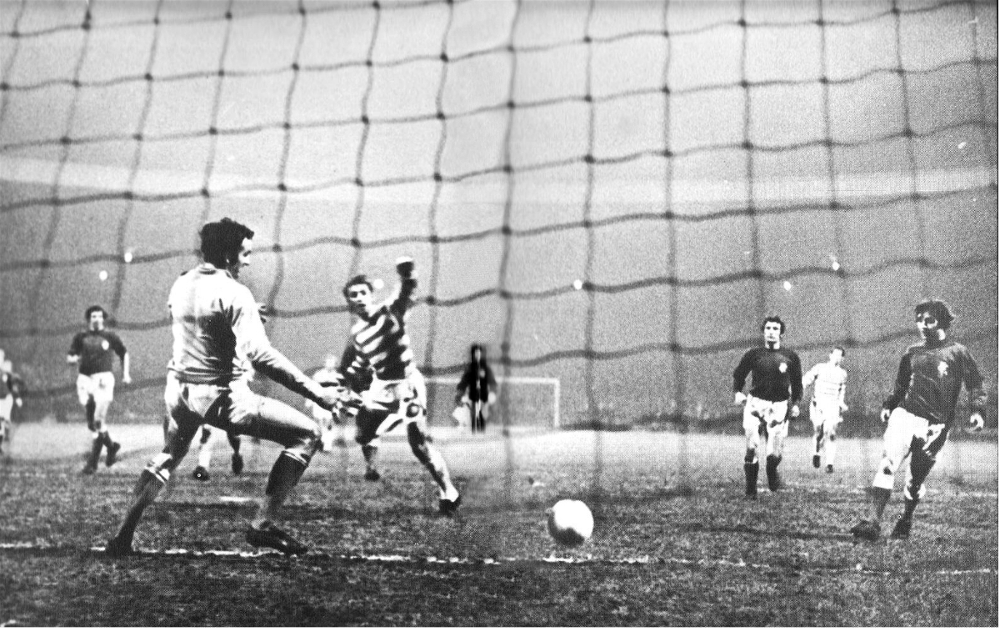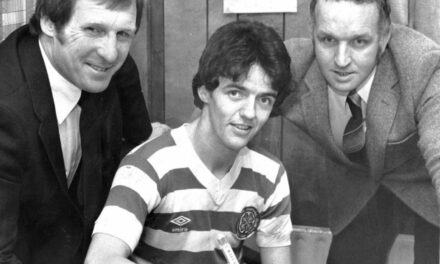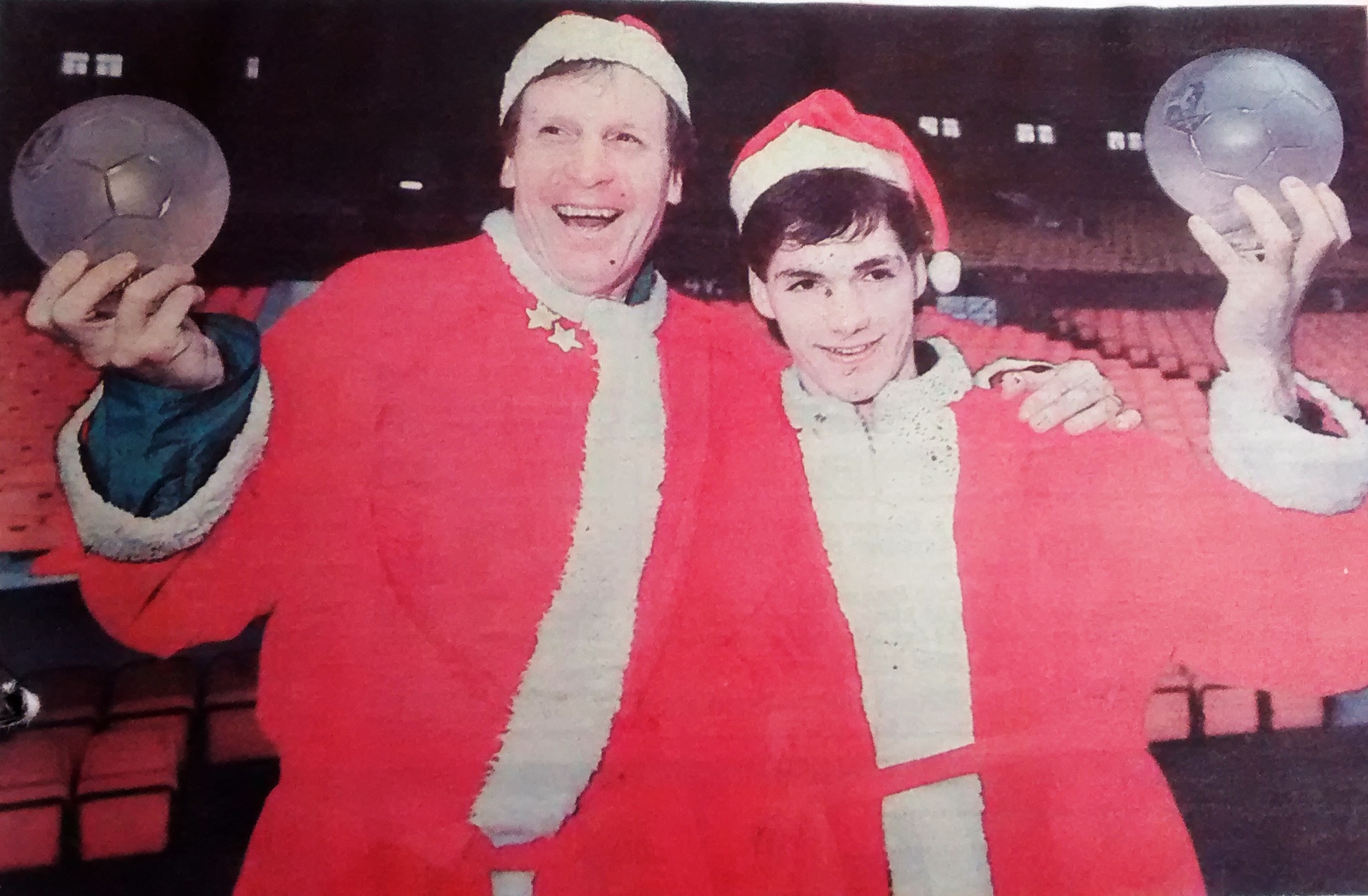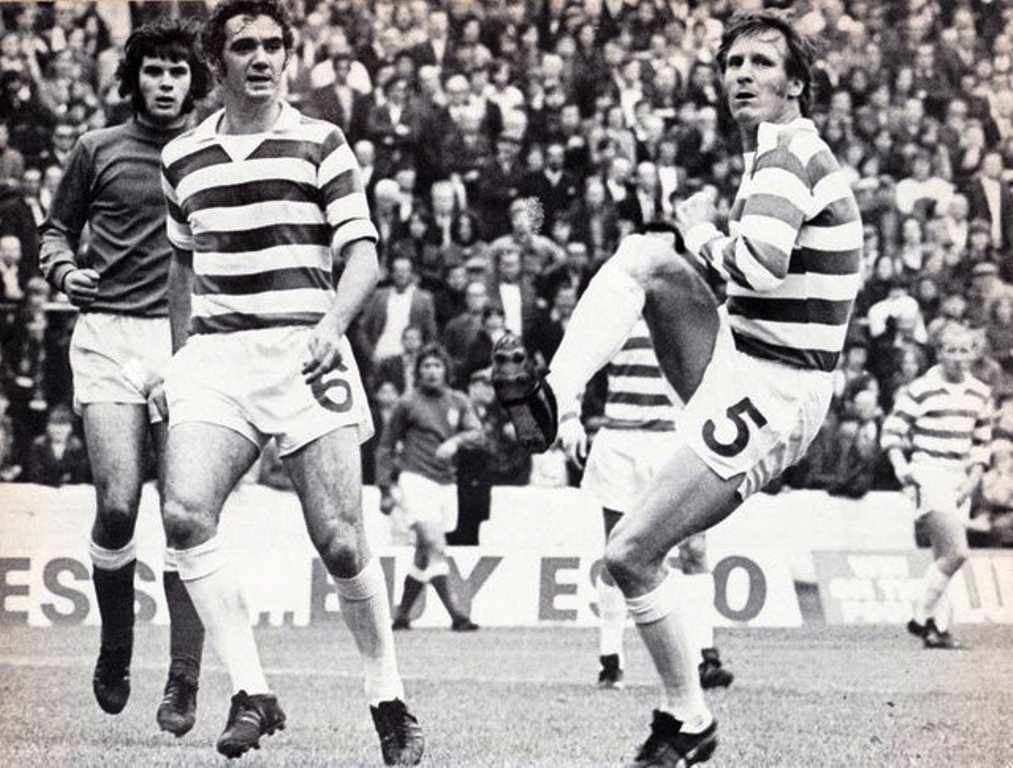On January 3rd 1972 Celtic faced Rangers at Parkhead in the traditional Glasgow derby New Year fixture. Celtic were strong favourites going into the game, given that they were on top of the league and had already beaten Rangers three times that very season. The Celts were looking forward to their forthcoming European Cup quarter final tie against Ujpest Dozsa, whilst it is an indication of the strength of the Scottish game at that time that Rangers were due to play Torino in a European Cup Winners Cup quarter final tie as well.
Jock Stein sprung a surprise before the game by playing the prodigiously talented Kenny Dalglish in the number 4 shorts in place of Bobby Murdoch as a massive crowd of 70,000 settled down to watch the clash. Both sides wore black armbands in remembrance of those who died in the Ibrox disaster just 12 months previously and the flags at Celtic Park were also flown at half mast as a sign of respect.
Rangers were desperate to regain some pride after their three previous setbacks against Celtic and it was a blow to them when Jimmy Johnstone, the smallest player on the park, scored with a header in 35 minutes. Try as they might, Celtic were not able to increase their lead and they suffered a body blow when Colin Stein equalise for Rangers in 81 minutes. The Rangers end of the ground was now in full voice at the prospect of a point at Parkhead and the moral victory that this would bring them. Celtic were then stung into action and threw everything at Rangers in reply.
The game was deep into injury time and most fans had settled for a draw when Billy McNeill launched a high, hopeful ball into the Rangers penalty area. Harry Hood showed tremendous technique to control the high ball and sent over a cross towards the Rangers goal, more in hope than expectation. Only one man anticipated Hood’s cross and that was Celtic’s left back, Jim Brogan. ‘Brogie’ had gambled by moving forward from his defensive role and he sent a fine, glancing header past Rangers’ despairing ‘keeper, Peter McCloy, and into the net for the most dramatic, if unlikely, of winning goals.
Parkhead exploded with joy as Brogan celebrated his moment of glory. Brogan was a true Celt, a committed jersey player whom the fans loved and a man who never gave anything less than total commitment in any game in which he wore the hoops. This was Jim’s moment in the sun and one he enjoyed to the full. The only sad aspect was that Jim’s father had left the ground just seconds before to beat the rush from the stadium and had missed his boy’s highly dramatic winning goal.
Remarkably, this was Celtic’s first league double over Rangers since 1912 and the lateness of Celtic’s winning goal caused the Rangers manager, Willie Waddell, to comment that his side were jinxed. This prompted a triumphalistic Celtic fan to write the following to The Daily Record:
‘Willie Waddell is right to say that there is a jinx over his team when they play Celtic. The jinx’s name is Jock Stein and he can jinx Rangers any time he likes because he’s the greatest manager in the game.’
There is an interesting precursor to this game. In the days leading up to the big match there was work required on Celtic’s expensive new main stand and Jock Stein came out to speak to the workers. Apparently Stein liked mixing with the workmen and he asked them, which Celtic player was the first one on his team sheet when they played Rangers. The men gave the usual guesses of Johnstone, McNeill and Murdoch. Much to their surprise, Stein’s answer was that Jim Brogan was the first pick for the side and he explained that in games against Rangers you had to win the physical battles to allow flair players like Johnstone, Dalglish and Hood the opportunity to express their considerable talents.
However, it’s doubtful if even Jock Stein could have considered for a minute that faithful Celt Jim Brogan would be the match winner on the day.





